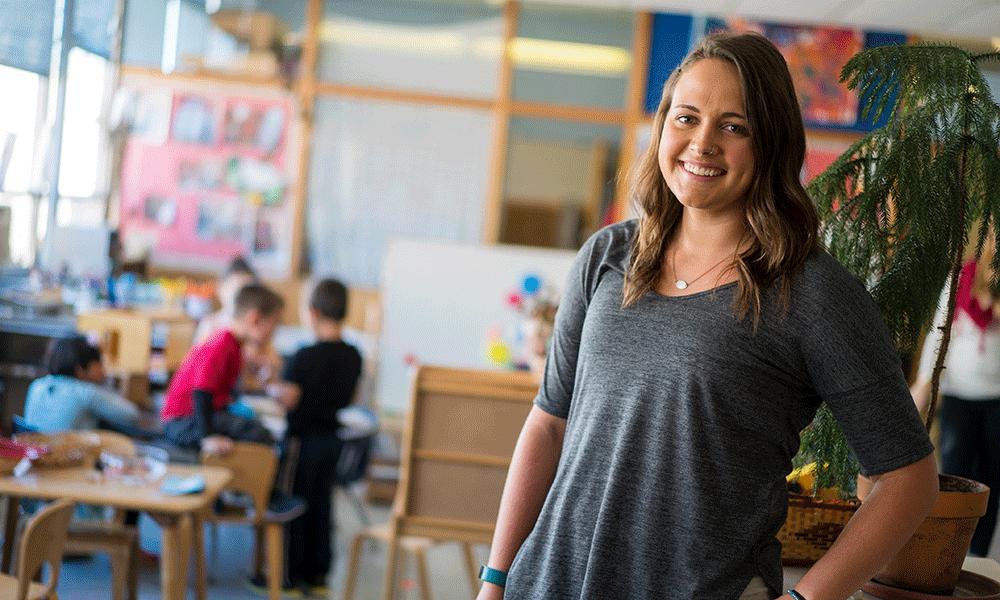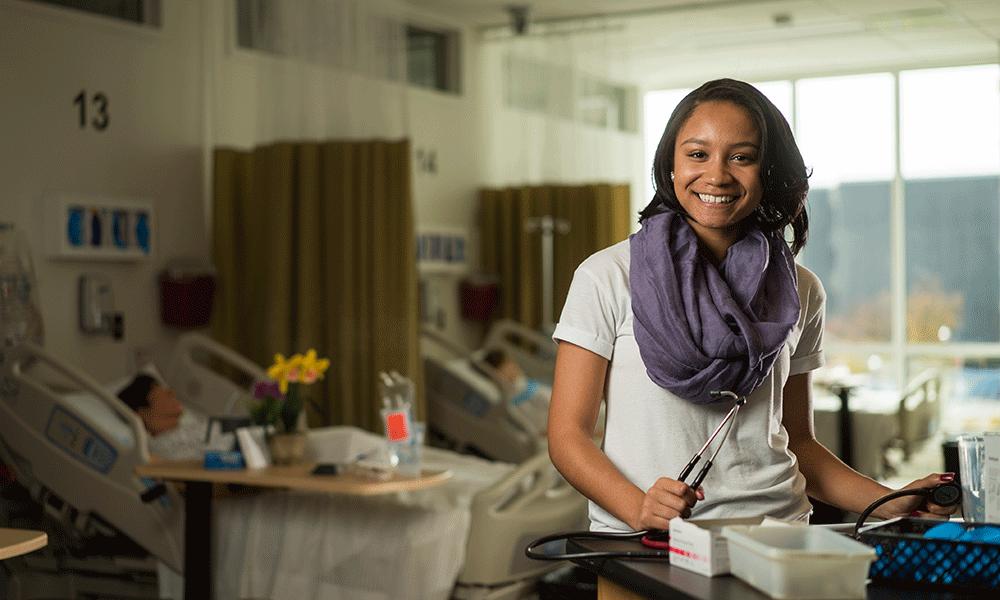On the bus
Volunteer work on JMU's Gus Bus brings students closer to the community and their future careers
JMU in the CommunitySUMMARY: JMU's Reading Road Show/Gus Bus Program just received a National Arts and Humanities Youth Program Award. JMU student volunteers play a key role in the operation of the Gus Bus. Two of those volunteers share their Gus Bus experiences with "Madison" magazine.
You can read more about the NAHYP award and the Gus Bus online. And stay tuned; the winter print issue of "Madison" magazine will have more of the Gus Bus story and the JMU people who have made the Gus Bus a beloved fixture in our local community.

|
Madison: What are your plans after graduation?
Harris: I'm in a five-year master's degree program here at JMU. So, after graduation I will begin my master's program.
Lee: I want to work as a nurse in a pediatric office or pediatric department in a hospital. I have plans to move back to my original home in California.
Madison: Why did you choose to work with the Gus Bus?
Harris: I am passionate about the Harrisonburg community and wanted to get involved with young students in whatever way possible.
Lee: Since I intend to specialize in pediatrics in my career, I wanted to get involved in community service working with children. I made the choice to work with the Gus Bus early on, in my freshman year.
Madison: What effect does the Gus Bus have on our local community?
Harris: The Gus Bus encourages literacy in the Harrisonburg community, giving children the opportunity to learn about literature and check out books that they might not normally get the chance to read outside of school. It is a great way for the kids to get excited about reading!
Lee: Gus Bus has a significant impact on Harrisonburg. The Gus Bus not only promotes literacy in young students, but also gives kids a safe place to be themselves and learn while providing services to low-income communities. The kids are allowed to check out books from the bus, receive free meals to take home each week, and free after-school tutoring is available for them if they are interested. The kids and their parents are all excited to see the bus pull up because of the opportunities that Gus Bus provides.

|
Madison: What effect has this program had on you personally?
Harris: I look forward to working with the Gus Bus every single week. Seeing the kids get so excited about the bus' arrival and the opportunities to interact with each other and the volunteers is so wonderful. I have also been able to see what Harrisonburg is like outside of JMU.
Lee: Working with the Gus Bus has made me a better person. It allows me to build relationships with kids and become their role model. Knowing that they look up to me has pushed me to be more responsible and be more aware of my actions. This program has also solidified my intention of specializing in pediatric nursing. The kids’ energy is great and spending time with them can be the highlight of my day. They’re awesome.
Madison: What are your communication strategies working with kids from different cultures and with varying degrees of English-language skills and literacy?
Harris: Working with kids who speak languages other than English is sometimes hard for me because I do not speak any other languages. However, reading is something that bonds all different cultures because it gives each person the opportunity to be connected through the same characters. It's important to listen to the kids, too, because they will tell you what they need even if you don't speak the same language.
Lee: I keep in mind that students who are bilingual with English as their second language may not always communicate as easily, especially because they’re in elementary school and still developing their skills. I make sure when giving directions to be clear and uncomplicated and allow them the opportunity to interpret. I also like to talk to them about their culture and who they are to make them feel comfortable and develop a stronger relationship. Learning about their background is helpful, especially working one-on-one. By talking to me, they may find my vocabulary can help build their confidence to use certain words.
Madison: How has your volunteer service with the Gus Bus benefited you?
Harris: I have met many different children from all different kinds of backgrounds. Working with these kids will provide a better understanding of important teaching strategies when I walk into my own classroom someday.
Lee: I have been able to develop connections and network within the community. It also has showed me more of Harrisonburg and allowed me to get outside of JMU. I am developing my skills and experience with children, and it makes me feel that I am really making a difference in the community.

